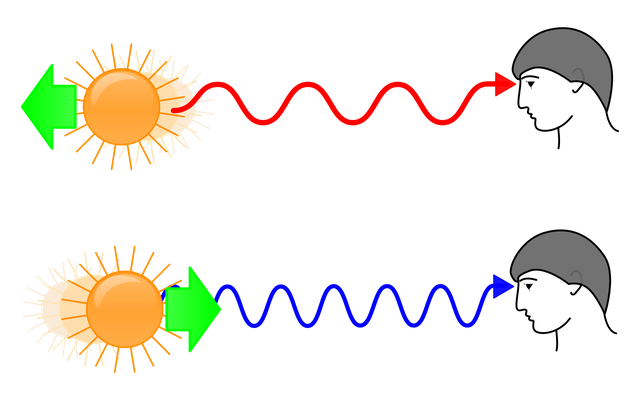Are we alone in the Universe?
The Universe is a big, cold, dark and lonely place, and it just so happens that on Earth we have the perfect conditions to support organisms that have gotten more and more complex over time. One of the most unanswered questions in Science and even in general, is could there be any sort of life elsewhere in the Universe?

How big is the Universe?
We know its big, by that we mean really big, but whenever anything is put into comparison it helps visualise it a lot better.
Picturing the size of the Universe
Imagine you have a penny on a table in front of you; imagine this penny is the size of the Sun. The closest star to the Sun is known as Alpha Centauri and to get to it you would have to travel 350 miles from the penny - which is like travelling from London to the edge of Germany.
Now that we have a rough scale to work with, we can begin to stretch out further. By travelling 7.5 million miles away from this penny you have travelled the length of our Milky Way galaxy. To put this into perspective, that distance is like travelling from the Earth to the Moon… 30 times – from a Sun sized penny.
These distances are crazy! In fact, too crazy to go further with words, so I strongly advise you to watch this video below. Soon into watching it and you’ll be hooked. This is the best representation I have seen of how big the Universe is and I promise this will make you feel tiny.
As you can see there are billions and billions of Stars in a Galaxy, and billions and billions of Galaxies in our Universe, and even a potential of a multiverse, with different laws of nature throughout it. So, if we can produce theories such as these, why have we not found life elsewhere in our Galaxy never mind the Universe?
Finding life on other planets
On our planet; where there is water there is life. What Astronomers do is they look for planets that orbit a Star in another solar system which are under similar conditions to the Earth. These planets in other solar systems are known as exoplanets.
How do we find exoplanets?
To literally see something, light must travel from that object into our own eyes. In astronomical terms; light must travel into the telescope from the object we are observing for us to see it.
Since the light of a star outside our solar system is going to ‘out-shine’ any light coming from one of the planets orbiting it, we cannot directly detect an exoplanet. Astronomers deduce there are exoplanets by studying differences in light detected from this star, over a period of time. Essentially, they look for tiny moving shadows, which are planets, and by studying these shadows further, more can be deduced about these planets.
Do you see how difficult this process is? It is like detecting a fruit fly flying in front of a car headlight, millions of miles away… then trying to determine the fly’s colour.
As you can imagine, even the most powerful telescopes cannot differentiate between the star’s and the planet’s light; which means we cannot directly observe exoplanet surfaces.

What if we had a telescope powerful enough?
Unfortunately having such equipment is not enough due to redshift or blueshift. Imagine you are sat waiting for the bus and a police car from up the road is coming towards you with its sirens going off. As it approaches you the pitch gets higher and as it drives away from you the pitch gets lower, next time keep an ear out for it. This is due to the doppler effect. The same applies with redshift and blueshift.
Since everything in the Universe is moving in different directions, we can have a mixture of two possible outcomes; if the Star we are observing is moving away from us – we get redshift. If the star is moving towards us we get blueshift. Redshift is when the wavelengths of light are ‘stretched’ so become more red. Blueshift is when the wavelengths of light are ‘squashed’ so become bluer.
Can you see how star systems moving in different directions at high speeds which are incredibly far away may affect our results? All we would see is a red or blue smudge!

So how do we know anything about exoplanets?
We have our incredible technology to thank for this. Once Astronomers find a moving little shadow in another solar system elsewhere in the Universe, they begin by studying the star that the planet is orbiting.
If the distance between the planet and star are suitable relative to the temperature the planet receives (we can estimate the temperatures of Stars by simply knowing how big it is!), simulations can be made on the computer of this exoplanet’s atmosphere and by using these simulations, we can further discover if this atmosphere allows for water to be present. If water is present we can assume that the planet may be habitable!
Summary
In summary, we are very far from finding any sort of life on other planets. What do I think? I think there very well may be life elsewhere considering how small we are in comparison to our Galaxy, mind you our Universe! I mean, have you seen that video I tagged above?
Let’s hope intelligent life forms out there are on the same quest as us, and some day either we bump into each other to prove that we are not alone. Who knows maybe one day as times progress we can visit them!
Thanks for reading this article and until next time, take care.
~ Mystifact
Put this on my to-read list thanks
Nice read!
Much appreciated, thank you!
you are welcome!
I also post about health,medicine and science!
YOu can follow my blog if you like!
https://steemit.com/@himal
Noted :)
The Universe Is a fiction created by Jesuit Freemasons, with the help of Universal Studios, BBC, Disney and NASA which are all controlled by the Cabal.
I worked at NASA for many years and have spoken to allot of people, including astronauts, about the existence of life elsewhere in our galaxy and the universe. All of our opinions are the same. There is no doubt in any of our minds that there IS life elsewhere in the universe....and there is an overwhelming chance that other intelligent life besides us exists as well. Enjoyed the read! Upvoted
We are like a pin prick in relation to the entire Universe, it would be absurd if there wasn't! Thanks for your comment.
I guarantee you there are non-human visitors MUCH closer than most imagine ;)
... actually some of them have accounts on steemit :)
Shhh! ;)
One can hope so! Thanks for your comment.
You can see my current series of posts on ET disclosure for more information.
We are not alone in the universe, actually we hardly see less than 1% of what is in front of us.
We are yet to find out my friend! Thanks for your comment.
The problem I like is time. Even if we observe intelligent life on an exoplanet with some super telescope, it would still take a billion years to get to them, at which point they'd probably have been consumed by a supervolcano 20 million years ago or something
And besides we still haven't figured out what the definition of "life" is. There might be lifeforms that we cannot comprehend or observe.
Agreed. This is why the detection of Gravitational waves is a breakthrough. They can revolutionise the way we look at Space completely! Thanks for your comment.
With the size of the Universe, I'm open to the possibility of life outside earth. Nice read as always.
Much appreciated my friend. Thanks for the comment!
The facts about life and universe is truly mind blowing!
There is more to come my friend! Thanks for your comment.
Very interesting! Followed you